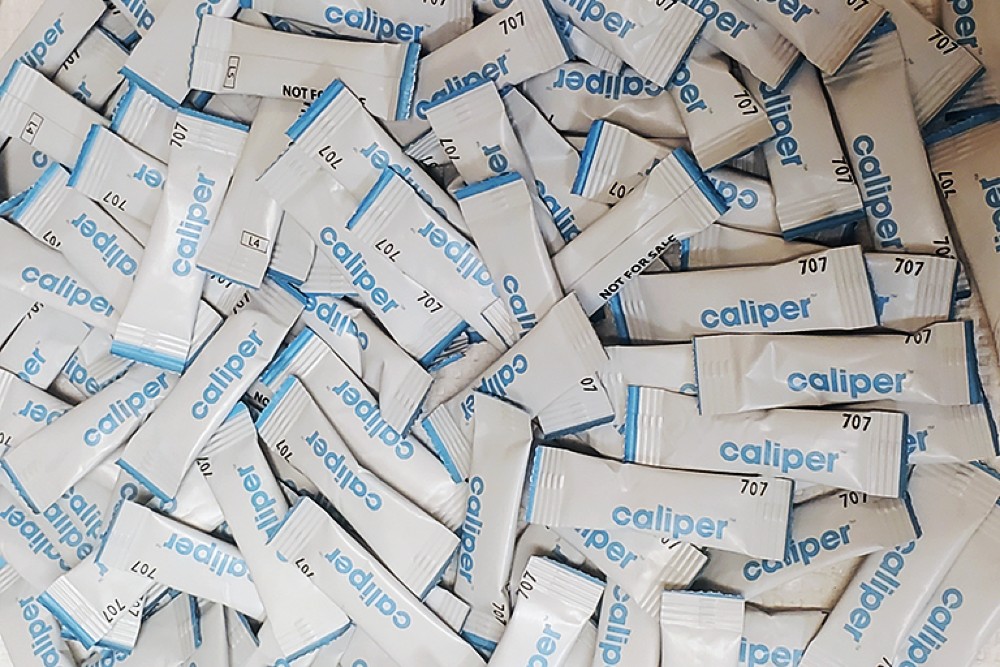
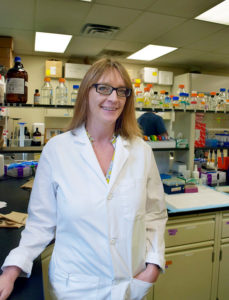
People can buy CBD products online, at medicinal stores and even at gas stations. But the fact consumers don’t fully know if CBD product claims are real has spurred Colorado State University researchers to study what effects that the non-THC cannabinoid can have.
“This was stimulated by the fact that now with the legalization of cannabis — not just in Colorado but around the country — these CBD products are popping up everywhere,” said Tiffany Weir, an associate professor in the Department of Food Science and Human Nutrition and one of several CSU collaborators studying CBD.
“A lot of people have the perception that CBD has benefits to health, but there hasn’t been a lot of research that’s been done.”
One of Weir’s studies determined that a water-soluble version of a product manufactured by Caliper CBD was more readily absorbed into the body than a lipid-soluble preparation.
Weir’s team collected immune cells in the blood and stimulated them with an inflammatory molecule to see if, compared to pre-CBD, people had reduced inflammatory responses post CBD.
“We did see that CBD attenuated a specific marker of inflammation in our pilot study, but more research needs to be done on a bigger sample size and it needs to include a placebo group to compare the effects.”
Weir, whose main area of research is looking at the interactions between diet and the gut microbiome, handed off the next stage to the Laboratory of Integrative Biology run by Christopher Bell, an associate professor in the Department of Health and Exercise Science.
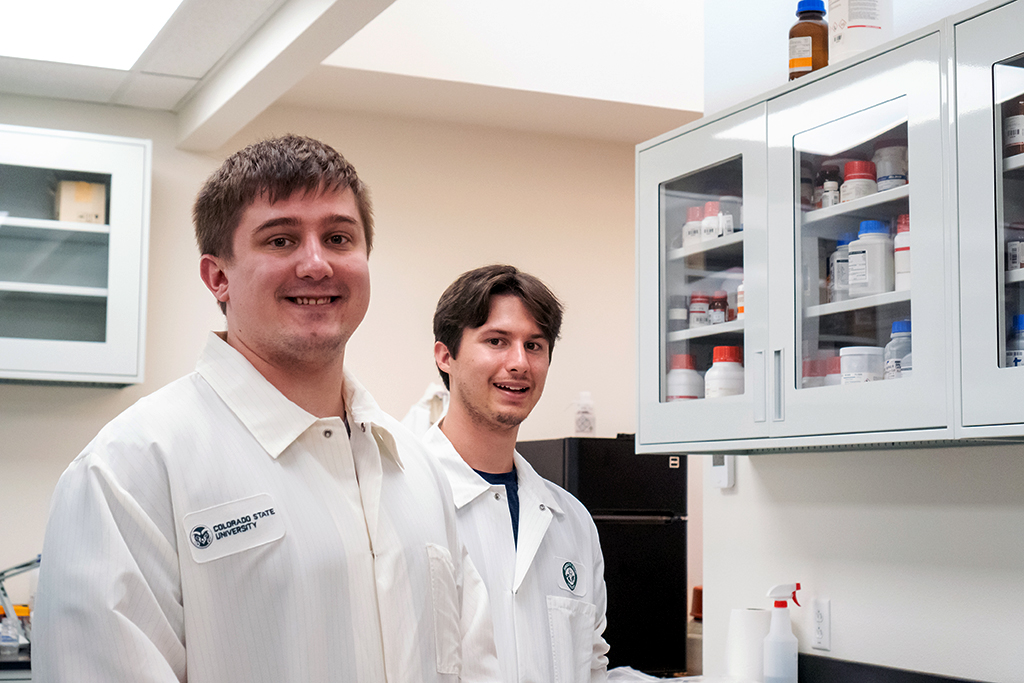
‘Fill in the gaps in the science’
One of Bell’s researchers, Taylor Ewell, said it is buyer beware.
“I think that the marketing has outpaced the science on CBD,” Ewell said. “There’s a lot of claims that it’ll help you sleep or it’ll reduce inflammation, or it’ll make you into Superman … like there are thousands of marketing claims.
“I’m not sure the science is really there to support all those claims. And so that’s a big part of what we’re doing is to kind of fill in the gaps in the science and see if CBD can actually do some of these things that it claims.”
Ewell said one of the several studies Bell’s lab has done suggested a slight positive effect of CBD use and heart rate variability. Ewell said if your heart beats exactly once per second for 60 seconds in a minute, that’s not ideal.
“If there’s a little bit of variability in there so it goes boom, boom and then it waits and then it goes boom, waits,” Ewell said. “That variability is a good thing. It means that your autonomic nervous system is probably healthy. And so we wanted to see if CBD could influence heart rate variability at all.”
Like in most scientific studies, one study leads to more and better research methods.
“We found that it could” impact heart rate variability, Ewell said, “It was slightly improved after the CBD ingestion, but we didn’t have a control group and so it could be that instead of CBD doing good things for heart rate variability could be that just laying in our hospital bed for an hour did good things for your heart rate variability.”
Study looking for participants
Ewell said other studies showed that CBD may influence insulin or triglyceride responses to a meal, but did not help with the rate at which a body burns calories.
Ewell said an ongoing study is seeking participants who are mostly healthy but who do not exercise or are overweight or obese. He said interested parties can email physiology@colostate.edu or visit the lab’s website to participate in a study about whether blood glucose changes are influenced by 30 days of CBD use.
Weir’s group will use samples from this study to follow up on some other outcome measures. They plan to look at how the longer-term supplementation impacts inflammatory markers in the blood and measure changes to the gut microbiota.
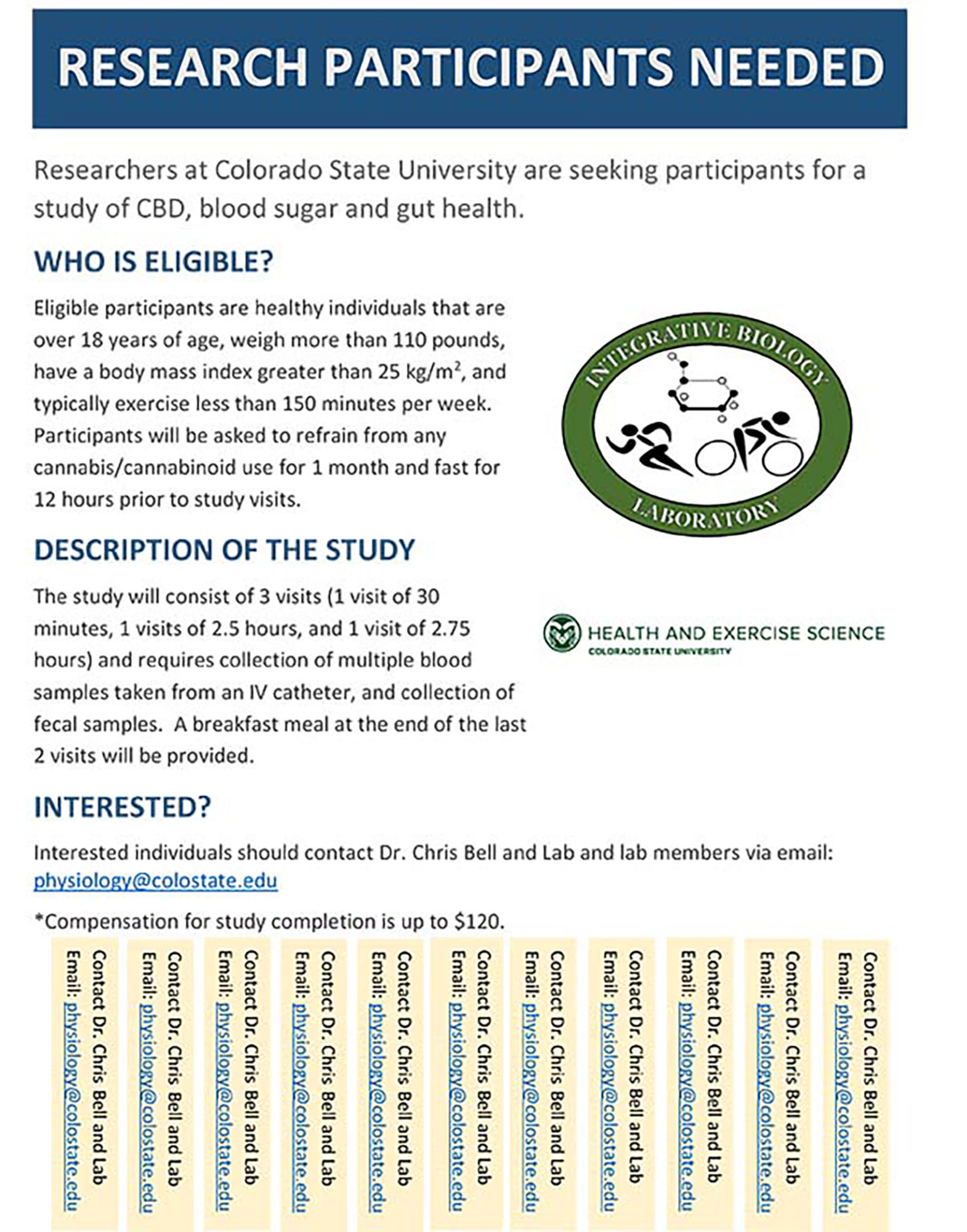
Ewell said those looking to CBD for medicinal purposes should lower expectations at least until more studies have been completed.
“I think if I was to tell my friends about it, I would say maybe don’t believe all the hype,” he said. “There’s a lot of marketing out there and not as much research and so they should just kind of be aware of how they’re spending their money.”
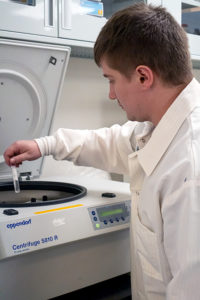 ‘Do your research’
‘Do your research’
Ewell said some people will feel better just by believing they will feel better. He just doesn’t want people spending too much on products with wild claims.
“I’m also a big proponent of if something makes you feel better than go for it, it could be just a placebo effect,” he said. “I mean, if it makes you feel better, that’s fine too.
“But if they don’t realize any sort of benefit and they keep spending money on it, I think that’s kind of a problem. So I would definitely tell them, OK, take your time, make sure you do research. Make sure you’re getting the right dose, you’re getting the product that you want and you’re buying from reputable vendors, things like that.”
The Department of Food Science and Human Nutrition is part of the College of Health and Human Sciences.